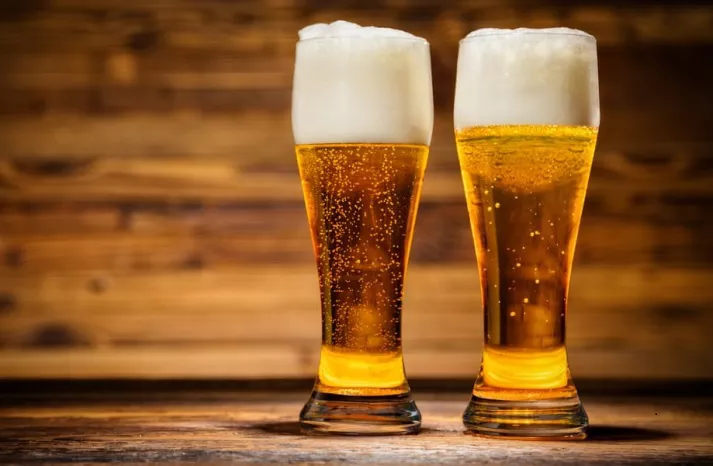Heineken, one of the world’s most recognized and iconic beer brands, has made a significant foray into the world of non-alcoholic beverages with Heineken 0.0. This remarkable alcohol-free beer has gained popularity for its refreshing taste and has raised the bar for non-alcoholic beer options. In this comprehensive article, we will delve into the world of Heineken 0.0, exploring its ingredients, brewing process, flavor profile, and its significance in the market of alcohol-free beverages.
The Birth of Heineken 0.0
Heineken’s journey into the world of non-alcoholic beer began with a commitment to innovation and a dedication to providing consumers with a choice that aligns with their lifestyles. In 2017, Heineken launched Heineken 0.0 as a response to the growing demand for alcohol-free options. The aim was to create a non-alcoholic beer that retained the classic Heineken taste while offering an alternative for those who preferred not to consume alcohol.
Heineken’s expertise in brewing, combined with extensive research and development, played a pivotal role in the creation of Heineken 0.0. The result was a non-alcoholic beer that promised the same premium quality and taste that consumers have come to expect from the brand.
Ingredients of Heineken 0.0
One of the fundamental aspects of Heineken 0.0’s success is the selection of top-quality ingredients that mirror the standards set by the original Heineken lager. These ingredients are carefully chosen to ensure that the non-alcoholic version captures the essence of the iconic beer. Here are the key ingredients of Heineken 0.0:
Water: Just like in the original Heineken beer, water is a crucial ingredient in Heineken 0.0. It is sourced and treated to meet the brand’s stringent quality standards, ensuring that the beer is pure and refreshing.
Malt: High-quality malted barley is used in the brewing process. Malt contributes to the beer’s body, flavor, and sweetness, helping to replicate the characteristic taste of Heineken.
Hops: Hops provide the distinct bitterness and aroma that are synonymous with Heineken. A specific blend of hops is used to craft Heineken 0.0, resulting in a balanced and refreshing beer.
Yeast: The yeast used in Heineken 0.0 plays a pivotal role in the fermentation process. It is responsible for converting the sugars into alcohol during the initial stages of brewing, which are later removed to make it non-alcoholic.
Aromatic and Bitter Hops Extract: To capture the essential hop flavors and aromas while removing the alcohol, Heineken uses a blend of aromatic and bitter hop extract during the brewing process.
The Brewing Process
Heineken 0.0’s brewing process is a meticulous and precise endeavor, mirroring the care and attention that goes into brewing its alcoholic counterparts. The key steps in the brewing process of Heineken 0.0 include:
Mashing: The brewing process begins with mashing, where malted barley is mixed with water to create a porridge-like substance. This mixture is heated, activating enzymes that convert the starches into fermentable sugars.
Boiling: The liquid extracted from the mash is boiled, and hops are added to impart bitterness and aroma. This is a critical step in shaping the beer’s flavor.
Fermentation: During fermentation, yeast is added to the boiled liquid to convert the sugars into alcohol. In the case of Heineken 0.0, the fermentation process is carefully controlled to prevent the alcohol content from developing.
Removing Alcohol: The beer is then gently heated to remove the alcohol while preserving the flavors and aromas. This is a crucial step in the creation of a non-alcoholic beer.
Blending: Once the alcohol is removed, the non-alcoholic beer is blended to achieve the desired flavor profile and consistency. This process ensures that every bottle of Heineken 0.0 maintains the iconic Heineken taste.
Flavor Profile of Heineken 0.0
Heineken 0.0 has been crafted to provide a distinctive and satisfying flavor profile that mirrors the classic Heineken lager. It is known for its:
Crispness: Heineken 0.0 offers a refreshing and crisp taste, making it an ideal choice for those looking for a non-alcoholic beer that is light and invigorating.
Balanced Bitterness: The beer maintains a balanced bitterness that comes from the hops, providing a pleasant and satisfying bitterness without being overwhelming.
Subtle Sweetness: The malted barley contributes a subtle sweetness, complementing the bitterness and creating a harmonious flavor.
Citrus and Herbal Aromas: Heineken 0.0 features the characteristic citrus and herbal aromas that are synonymous with the brand. The use of specific hops extracts ensures these aromas are present in the non-alcoholic version.
Heineken 0.0 in Culinary Pairings and Mixology
Heineken 0.0’s flavor profile, reminiscent of classic Heineken, makes it an excellent choice for culinary pairings and mixology. Here are some ways in which it can be used:
Food Pairings: Heineken 0.0 pairs well with a range of dishes, including salads, grilled seafood, light pasta, and appetizers. Its crispness and balanced bitterness complement a variety of flavors.
Beer Cocktails: Heineken 0.0 can be used in beer cocktails to create refreshing and non-alcoholic beverages. Classic beer cocktails like the Radler, Shandy, and the Nojito can be made using Heineken 0.0.
Marinades and Cooking: It can be used in marinades for meats or as an ingredient in cooking to add depth and flavor to dishes. The beer’s balanced profile complements various recipes.
Conclusion
Heineken 0.0, with its meticulous brewing process and commitment to quality, has emerged as a prominent player in the world of non-alcoholic beverages. It offers consumers a non-alcoholic beer that captures the essence of the classic Heineken lager, providing a refreshing and satisfying alternative for those seeking moderation or a non-alcoholic option.


